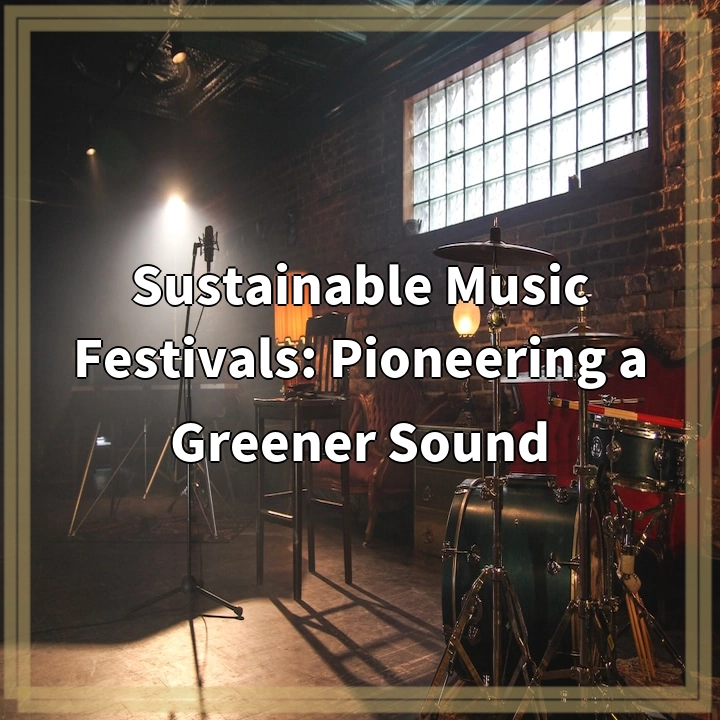Physical Address
304 North Cardinal St.
Dorchester Center, MA 02124
Physical Address
304 North Cardinal St.
Dorchester Center, MA 02124

Music festivals have long been known for their vibrant atmosphere, energetic performances, and enthusiastic crowds. However, the environmental impact of these large-scale events has raised concerns in recent years. In response, a new wave of sustainable music festivals is emerging, prioritizing environmental responsibility and striving to minimize their ecological footprint.
Sustainable music festivals are events that go beyond the music and prioritize environmental sustainability. These festivals incorporate environmentally-friendly practices in various aspects of their operations, such as waste management, energy usage, transportation, and water consumption. By adopting sustainable measures, these festivals not only reduce their carbon footprint but also raise awareness among attendees about the importance of environmental conservation.
While sustainable music festivals have gained popularity, several challenges persist in achieving fully sustainable events. Waste management is a significant issue, as festivals generate substantial amounts of waste, including food containers and single-use plastics. To address this, comprehensive waste management systems can be implemented, including recycling facilities, composting options, and reducing single-use items. Creating a culture of environmental responsibility among festival-goers is also crucial.
Energy usage is another challenge, as music festivals require a significant amount of energy to power stages, lighting, and sound systems. Transitioning to renewable energy sources, such as solar and wind power, can significantly reduce the carbon footprint. Investing in sustainable energy infrastructure and incorporating energy-efficient technologies are key steps in minimizing energy consumption and emissions.
Transportation is a major contributor to carbon emissions at festivals, with attendees traveling from various locations. Encouraging greener transportation options, such as shuttle services, bike rentals, and carpooling initiatives, can help mitigate the environmental impact. However, logistical considerations and accessibility challenges must be addressed to provide sustainable transportation options for all attendees.
Water conservation is vital at music festivals, where thousands of attendees can strain local resources. Implementing water-efficient practices, such as utilizing low-flow fixtures and providing hydration stations for refilling reusable bottles, can help reduce water consumption. Educating attendees about the importance of water conservation and promoting responsible water usage are also essential.
Moreover, sustainable music festivals aim to educate attendees about environmental issues and inspire them to adopt eco-friendly practices. Integrating environmental education into the festival experience can have a lasting impact. Interactive workshops, informative signage, and collaborations with environmental organizations can enhance the educational aspect and promote positive environmental change.
Sustainable music festivals are paving the way for a greener future in the music industry. By prioritizing environmental responsibility, these festivals are not only reducing their ecological impact but also inspiring attendees to make environmentally conscious choices beyond the event. As more festivals embrace sustainability, the music industry as a whole can become a driving force for positive change.
With comprehensive waste management, renewable energy implementation, sustainable transportation options, water conservation measures, and engaging environmental education, sustainable music festivals are setting a new standard for large-scale events. By combining entertainment with environmental consciousness, these festivals are proving that a greener sound is not only possible but also essential for the future.
If you’re wondering where the article came from!
#